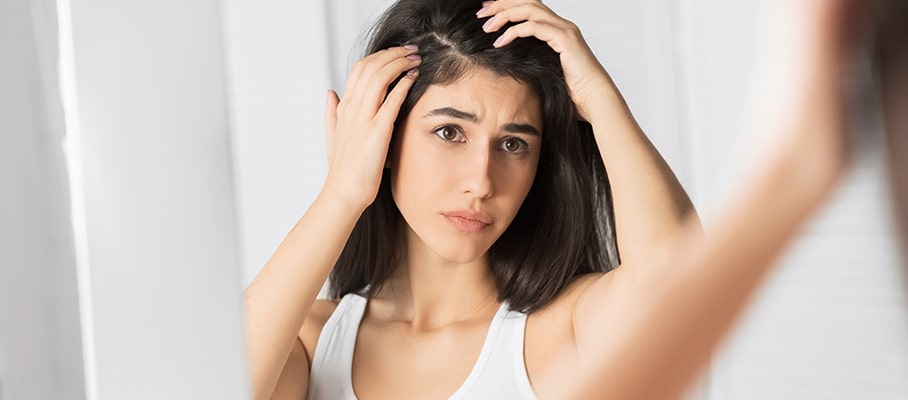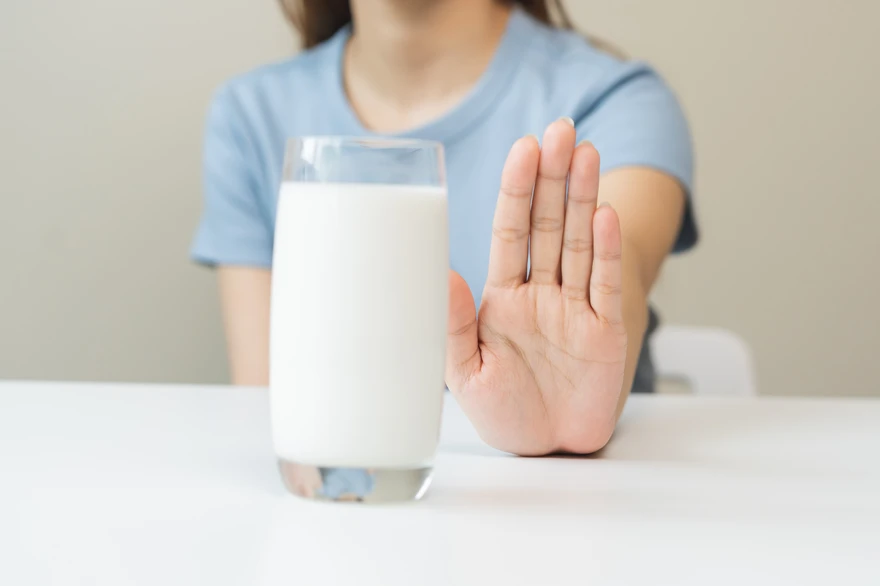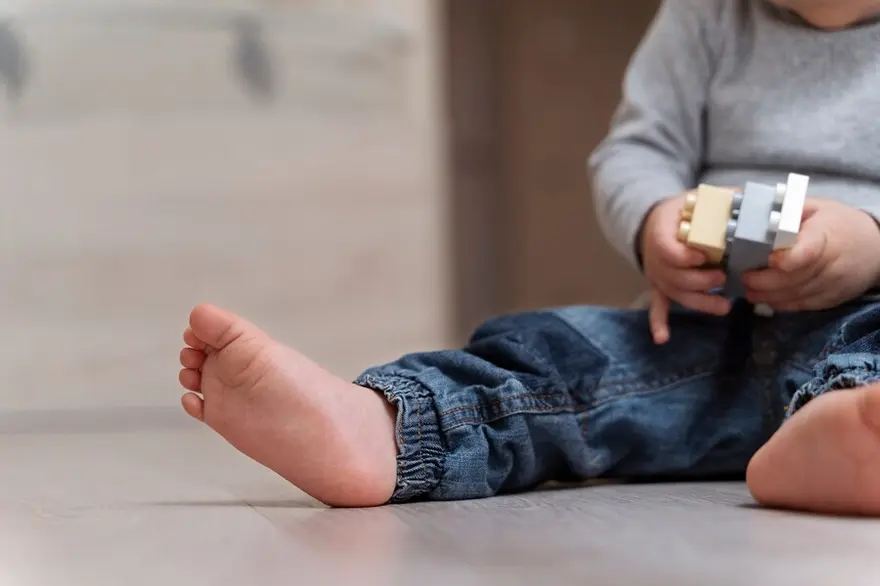Lifestyle
What are The Home Remedies For Dandruff?
197101 Views
1

Do you often see pesky white flakes on your shirt or find your scalp itchy? Do you see your washbasin/sink filled with flocks of hair? Watch out, as these can be the signs of dandruff on your head. Irrespective of age or gender, it can be found in both men and women and is not something you should take lightly. Know about the home remedies for dandruff treatment at home.
Dandruff is a common condition that can be found in the hair all year round and is the result of a dry and itchy scalp. Often caused by the overgrowth of a fungus, Malassezia, it especially becomes evident during winter as the scalp is unable to get enough moisture and becomes dry. Malassezia feeds on the sebum i.e the oily substance secreted by the glands on the scalp. And when this fungus feeds on the sebum, it breaks into fatty acid that causes irritation on the scalp.
Confused about what is causing you an itchy scalp?
Dandruff should not be taken lightly as it denotes a microinflammation, which might be easily overlooked as there are no readily observable symptoms. Apart from dry and itchy scalp, there are a few other causes of dandruff which are:
- Prolonged period of stress
- Parkinson’s or illness such as eczema
- Harsh or irregular brushing
- Lack of nutrients such as vitamin B12
- Unadvised or irregular use of hair care products
- Pollution and heat
You are more likely to have dandruff if your scalp feels oily or your hair looks greasy at most times. At times you may also experience intense itching even when the scalp does not feel dry. In extreme cases, it can show up severe itching and worsened flakes over time or as large areas of redness or swelling on the scalp.
Many of you resort to using multiple antidandruff products to get rid of the problem temporarily, but do you know there are several effective and easy-to-implement home remedies that can help you save that money you spend on hair care products?
Some effective home remedies for dandruff are:
- Coconut oil and lemon:
Coconut oil is something that everyone’s grandmother advices. Its antifungal properties can provide a great relief from itchiness and dry scalp. Combine equal amounts of coconut oil and lemon juice and massage the mixture on your scalp. Keep it for about 10-15 minutes and rinse your hair thoroughly. This will not only help you get rid of dandruff but also boost hair growth and nourishment. Make sure to preheat the oil in winter as it tends to freeze easily in colder temperatures.
- Yogurt:
The lactic acid in yogurt helps reduce dandruff and the protein in it strengthens your hair from its roots. It is a treasure trove of friendly bacteria and helps prevent flaking of the scalp area. Apply a layer of fresh yogurt on the scalp and hair. Let it sit for 10-15 minutes and rinse with lukewarm water and dry. You can try adding black pepper to yogurt since that is also loaded with anti fungal properties.
- Neem:
Using freshly grounded paste made of neem leaves for skin problems dates back to the ancestral times. Because of its antibacterial, anti fungal and antimicrobial properties, it is a simple cure for dandruff and itchiness.
Alternatively, you can simply boil some fresh neem leaves, let it cool and rinse your hair with that water.
- Aloe Vera:
A panacea for all type of skin problems, Aloe Vera alleviates flakiness and skin irritation, acts as a natural coolant and makes your scalp itch free and cool. Aloe Vera has certain anti fungal properties that helps treat recurring dandruff and cleanses dead skin for regeneration of fresh cells.
Apply aloe vera gel on your scalp, leave for about half an hour and later wash your hair with a mild shampoo.
- Apple Cider Vinegar (ACV):
ACH works as a natural hair cleanser and unclogs pores and hair follicles. Its acidic nature helps remove dead skin cells on the scalp, prevents the growth of fungus and restores the pH balance of your scalp.
Simply make a mixture using 2 tablespoons of Apple Cider Vinegar in a cup of cold water and rinse your hair after shampooing. Let it settle for two minutes before washing it off. To get the best results, it can be used once a week.
- Salt:
Salt can absorb excess oil on your scalp, making it itchy and irritable. Oily scalp is also the reason for pimples on the forehead and hence it is best to treat dandruff at home as quick as possible.
Just add a pinch of salt to your usual shampoo and apply on your hair. Massage it gently in circular motions all over your scalp and exfoliate. Leave it for a minute or two and wash with lukewarm water.
- Olive oil and Vinegar:
Olive oil acts as a natural conditioner for hair, and being lightweight, applying it on hair doesn’t weigh them down. Combined with acetic properties of vinegar, the mixture guards the scalp from fungal infection and at the same time improves blood circulation.
Mix 1 teaspoon olive oil with 2 teaspoon of vinegar. Apply the mixture evenly on hair and massage the scalp for 5 minutes. Wash it with antidandruff shampoo and apply a conditioner for best results.
Apart from these quick home remedies to treat dandruff at home, there are other certain tips that can prove beneficial in reducing flakiness and dryness of the scalp.
- Try to avoid eating too much sugar, fats and carbs
- Avoid using styling tools too often as any kind of artificial heat can cause irreparable damage and precipitate dandruff
- Don’t scratch your scalp often
- Shampoo your hair 2-3 times a week to loosen the dead skin from the scalp
- Brush your hair often to improve blood circulation in the scalp
Following a balanced and a healthy hair care routine can help reduce dandruff to a huge extent. However if you see no relief, and the itchiness or dryness still persists, you should consult a doctor for seborrheic dermatitis, a fungal infection on your scalp.













1701259759.webp)









 WhatsApp
WhatsApp
Silas
13 Feb 21 02:01 amSo many people have no knowledge of the fact that scalp therapy shampoos for fast hair growth (of course with no sulfates, no parabens, no DEA) exist. Hair styling enthusiasts are now able to achieve longer hair and achieve more options. Surely worth looking up. If you're discussing hair loss, damaged hair, preventing hair disorders, hair growth, hair health normally, similar principles actualize. As a general rule, you will want to steer clear of hair treatments and products that contain chemicals such as parabens, DEA and sulfates. What's healthy for your hair is healthy for your skin all the same. For obvious reasons the content above is so useful for many reasons. It stays away from the common mistakes and mistakes most fall into: utilizing ineffective alternatives. Keep it up!